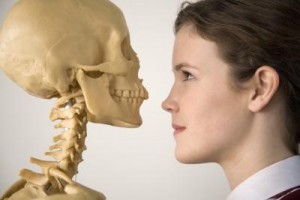Exercise Makes You Smarter By Giving Your Brain Extra Energy

Everyone knows exercise is good for you, and studies have previously shown that it can boost learning
and even stave off dementia in later life—though nobody knew why. New research suggests, though, that it’s because the brain takes advantage of energy delivery systems just as much as your muscles.
When you exercise, your muscles create something called mitochondria—tiny structures in cells that provide the body with energy. It turns out brain cells also get a boost in mitochoindira when you exercise, according to research, which appears in the Journal of Applied Physiology, by J. Mark Davis, a physiologist at the University of South Carolina.
According to the researcher, the presence of extra mitochoindria in the brain provides an increased energy supply, which in turn allows the brain to work faster and more efficiently. It could help explain why exercise seems to reduce age- and disease-related declines in brain function. “The evidence is accumulating rapidly that exercise keeps the brain younger,” Davis told Scientific American. [Journal of Applied Physiology via Scientific American; Image:Rido/Shutterstock]
article originally from: Gizmodo







